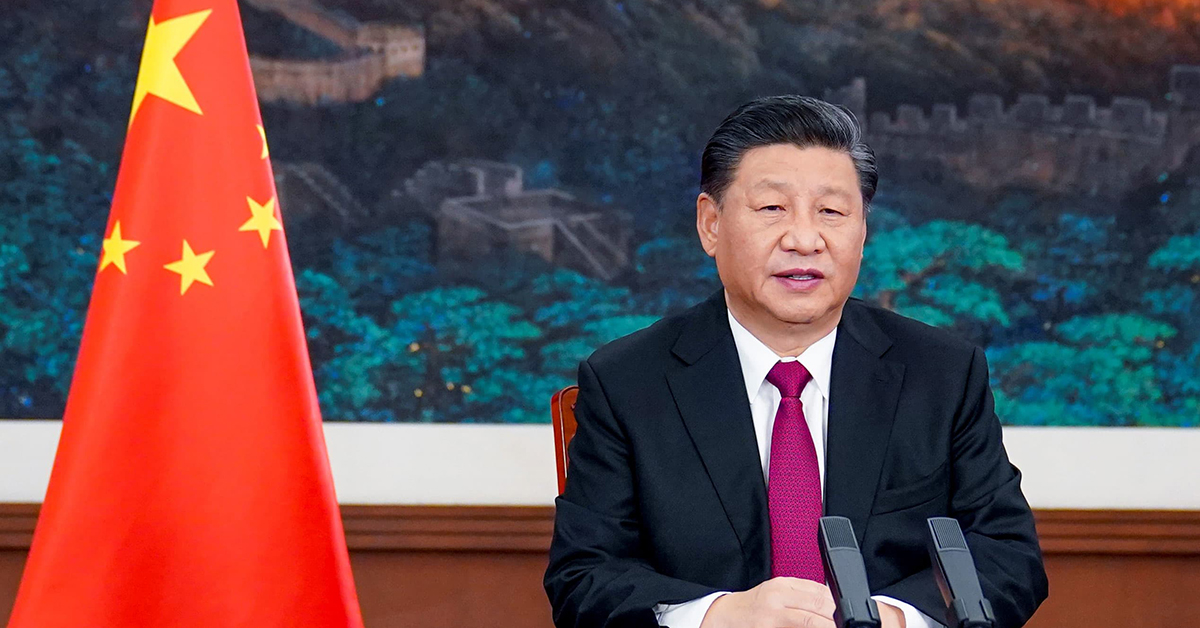Dawn Murphy
Over the last twenty years, China’s interactions with and influence in the Middle East have grown substantially. More than ten years ago, China’s trade with the Middle East surpassed the US, and it is increasingly a significant supplier of foreign direct investment (FDI) and technical cooperation. Today, China’s trade with the region far exceeds the United States. In 2021, China’s imports from the Middle East were $130 billion versus $34 billion for the US, and China’s exports to the region were $129 billion compared with the US at $48 billion. The United States continues to maintain a significant economic presence in the region through FDI stocks and the longevity of US company interactions. Still, that advantage is also eroding over time.
Leveraging a wide range of foreign policy tools, China has steadily built strong, multi-faceted political and economic relations with all countries throughout the Middle East. The Forum on China-Africa Cooperation (FOCAC), established in 2000, facilitates coordination with states across North Africa and the rest of the African continent on a wide range of political, economic, and security issues. Similarly, the China-Arab States Cooperation Forum (CASCF), started in 2004, provides a platform to interact with all the members of the League of Arab States. Also, increasingly, the Shanghai Cooperation Organization (SCO) includes Middle Eastern states. Iran joined as a formal member this year, while Turkey is a dialogue partner and has expressed interest in joining as a full member. Saudi Arabia, Egypt, and Qatar also became dialogue partners this year, and the United Arab Emirates, Kuwait, and Bahrain are on track to become dialogue partners next year.
To address hot spots in the region and contribute to peace and security, China established a Special Envoy for the Middle East (2004), primarily focussed on the Middle East peace process, and a Special Envoy for Syria (2016) to help contribute to the resolution of the Syrian civil war.
China’s increasing influence in the Middle East is not pushing out the United States, but states in the region may be seeking to pull in China.
China has established strategic partnerships with many states across the Middle East, including Egypt (1999), Algeria (2004), Turkey (2010), UAE (2012), Qatar (2014), Jordan (2015), Iraq (2015), Iran (2016), Morocco (2016), Saudi Arabia (2016), Oman (2018), and Kuwait (2018). It is also actively negotiating free trade agreements with the Gulf Cooperation Council (GCC), Israel, and Palestine.
Although China’s economic and political engagement with and influence in the region is growing, that does not necessarily result in pushing out the United States. Despite establishing its first overseas base in Djibouti in 2017 and reports of attempts to establish a Chinese base in the United Arab Emirates, there is little indication that China desires to play a more significant security role in the region. Up to this point, it has not picked sides in regional conflicts, its security interactions have mainly involved multi-lateral activities such as United Nations peacekeeping operations and antipiracy activities, and it has not demonstrated a desire to mimic or replace the security role the US has played in the region for decades.
China is not pushing the United States out of the region. Still, as China’s economic and political role grows and the US pursues more energy independence and shifts its focus to Asia and Europe, states in the Middle East may increasingly want to enhance their relations with China to demonstrate that they have other great power options. Declarations generated from Xi Jinping’s upcoming visit to Saudi Arabia to attend the next CASCF meeting and a summit with GCC leaders will likely provide insights into the trajectory of China’s role in the Middle East. That said, for now, China’s increasing influence in the Middle East is not pushing out the United States, but states in the region may be seeking to pull in China.
Yitzhak Shichor
This question reflects some misunderstandings. China cannot “push the US out of the Middle East”, and does not have the will, or intention, to do it, let alone to replace the US. “China’s increasing influence in the Middle East” is mainly economic, less political, and none military. All Middle Eastern states (including Syria and Iran) understand that the US greatly outranks China, and would not uphold pushing the US out of the region, least of all its replacement by China. Despite its presumed “weakness” and “retreat” from the Middle East, Washington still uses it as a military pivot, and a source of a quarter of its oil import.
Usually, China-Middle East relations are treated narrowly. They should be analysed in a wide, multilateral, historical and ideological perspective. Essentially, it is a component of a bigger question: does China intend to become a leading superpower at the expense of the US, in the Middle East―and elsewhere? Many, mostly American, would agree. Washington seems so obsessed with China that it seems a psychological, perhaps psychiatric, disorder. True, Imperial China, as its name implies, considered itself as the “Middle Kingdom”, the centre of the world. Speeches of Xi Jinping, and some of his predecessors, underline the conclusion that the Chinese seek to restore their “predominant” position. Yet, China has never assumed global predominance. Although the world’s leading economy by the mid-19th century, and a model for Europe’s Enlightenment, China was never aware of these “achievements” nor claimed “world” leadership.
Ordering the world, not to mention the complex Middle East, is not a Chinese priority.
The “world” (tianxia, “all under heaven”), of which Imperial China saw itself as the centre, was the “world” they knew, primarily East and Central Asia. Moreover, even when its military and naval forces had reach the Caspian Sea, East Africa, the Red Sea and the Persian Gulf, they always withdrew. China’s power was more cultural and economic, less military and political. An economic autarchy, China was not missionary nor monotheistic. Unlike other empires, China’s economic needs, religious beliefs, or lack of space were never a motivation for territorial expansion. China had limited interest in the “world”, ruling it, or putting it in order. Confucius said: “To put the world in order, we must first put the nation in order”. Ordering the world, not to mention the complex Middle East, is not a Chinese priority. Whatever Xi Jinping, and other Chinese leaders, say, their top interest is China, not the world, certainly not the Middle East.
Deeply affected by Cold War mentality, the West, led by the US, interpret contemporary China’s behaviour, both at home and mainly abroad, according to their experience―not China’s. What Beijing prefers now (less during the Sino-Soviet conflict) is to push the US out of East Asia, considered its sphere of influence. As for foreign powers’ presence in the Middle East, the US, Britain, France, the Soviet Union, and Russia, for Beijing they are not just the main source of regional problems, but also the principal obstacle to their solutions. Nevertheless, Beijing realizes that US presence promotes regional stability, needed for China’s economy. China does not intend to replace the US in the Middle East, or elsewhere, except for East Asia. It is using its anti-US activities in the Middle East (e.g. in Iran) primarily for this purpose.
Muhammad Zulfikar Rakhmat
With China’s growing foothold in the Middle East and North Africa (MENA), it is often thought that Beijing is challenging US influence in the region. However, Chinese officials repeatedly assert that China does not aim to become “the next America” in the region, as there are domestic and regional issues that are more of priority to Beijing than pushing out the US from the Middle East.
While the US’s declining interests in the Middle East may open up opportunities for China to play a bigger role, China also sees that this shift may result in regional instability
At present, there are many problems occupying the minds of policy makers in Beijing. These include a declining economy, growing inequality, environmental problems, and pressures coming from Tibet, Hong Kong, Xinjiang and Taiwan. Without proper solutions, these issues may not only get worse, but also threaten the legitimacy of the Chinese Communist Party. Beyond domestic issues, China considers maintaining relations with countries that share land and maritime borders with China as more crucial. This includes countries that have strained ties with Beijing, such as South Korea, Japan and India. This is not to mention Southeast Asian countries, which have growing anti-China sentiment due to ongoing tensions in the South China Sea. Managing these regional relationships is of higher importance to China. This does not mean that the Middle East has no place in China’s foreign policy calculations. Rather, these issues may for now prevent China from seeking greater engagement in the region.
Moreover, in recent years, with Washington’s increased focus on the Indo-Pacific, Beijing feels that it should devote more attention responding to the US’s pivot to Asia than to challenging US primacy in the Middle East. While the US’s declining interests in the Middle East may open up opportunities for China to play a bigger role, China also sees that this shift may result in regional instability, which will be detrimental to its economic interests in the Middle East. China, which has limited experiences and tools to expand its security roles in the MENA region, seems to follow the thinking of Middle Eastern leaders: that the US and its European allies should remain the security providers of the region. China’s supposedly more active roles in the region, such as establishing strategic partnerships with regional powers like Iran, and providing military support Saudi Arabia and the UAE, are not signs that it aims to replace US’ presence in the region, but rather that it seeks to maintain commercial cooperation with countries of the Middle East.
This article gives the views of the authors, and not the position of the China Foresight Forum, LSE IDEAS, nor The London School of Economics and Political Science.
The views expressed do not reflect the official policy or position of the National Defense University, the Department of Defense, or the U. S. Government.
The blog image is “Ali Khamenei met with Xi Jinping in Tehran 2016” (CC BY 4.0).






good news for nation
This will give hugh impact to global economy